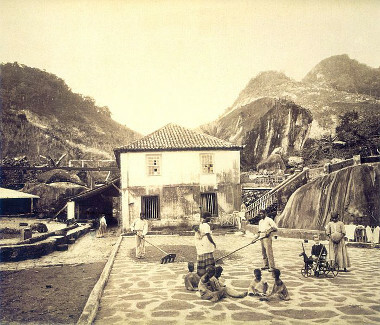Olga Benário Prestes she was a German revolutionary who became known in Brazil by marrying Luiz Carlos Prestes and allegedly becoming involved in the organization of the Communist Intentona. Olga fought the rise of fascism in Europe, was arrested in Brazil and deported to Germany in 1936. There she was imprisoned until 1942, when she was killed in the gas chambers used by the Nazis during the Holocaust.
Youth of Olga Benário
Olga Benário was born on February 12, 1908, in the city of Munich, Germany. Daughter of Leo Benário and Eugenie Benário, Olga was from a wealthy family. When she turned 16, she moved to Berlin because she intended to be military for the German Communist Party. Fernando Morais says that, after a few months in Berlin, Olga was already the Agitation and Propaganda secretary of the Communist Party's working-class base in Neukölln |1|.
The role of Olga and the Communist Party in the 1920s was mainly in combating the growth of far-right militias in Germany. In 1928, Olga fled Germany after participating in the rescue of her boyfriend, Otto Braun, from Moabit prison. For this reason, she was convicted of high treason to the motherland and went into exile in Moscow, in Soviet Union.
In the Soviet Union, Olga joined the Communist Youth and there received military and political training in accordance with the principles of Soviet communism. In Moscow, Olga met Luiz Carlos Prestes, who had become an important figure in Brazil by leading the About Column - militia that marched through the interior of Brazil fighting against the troops of President Artur Bernardes and denouncing the extreme poverty of the Brazilian people.
Olga's Mission in Brazil
In 1934, Olga Benário received a mission from a leader of the Communist International to ensure the safety of Luiz Carlos Prestes on his return to Brazil. The Communist International was an internal movement of Soviet communism that set the guidelines for the expansion of communism internationally.
The return of Luiz Carlos Prestes to Brazil was considered strategic in combating the growth of fascism in the country. The far right was registering a very large growth in Brazil from the action of the Brazilian Integralist Action (AIB). The AIB was an extreme right-wing group that was inspired by the model italian fascist.
Furthermore, many historians claim that Prestes had been sent to Brazil to put into practice plans to take power from a communist insurrection. His biographer, Anita Leocádia Prestes, historian and daughter of the revolutionary, however, denies that Prestes had come to Brazil with ideas of organizing a communist insurrection.
Prestes' coming to Brazil would be carried out clandestinely, as he had been wanted since he deserted the army. Prestes' reception was carried out by National Liberating Alliance (ALN), leftist front that acted directly in the fight against the growth of the extreme right in Brazil.
During the trip to Brazil, Olga and Luiz Carlos Prestes got married. Once in Brazil, Prestes served as a member of the Communist Party of Brazil and the National Liberation Alliance and organized an insurrection against the Getúlio Vargas government in Communist intent, in 1935. Army uprisings were organized in Natal, Recife and Rio de Janeiro. The movement, however, was a failure, and Olga and Prestes were arrested in 1936.
Deportation and death of Olga
Upon being arrested, Olga announced her pregnancy. As there was no cooperation from Olga during the investigations, she was deported to Germany in 1936 aboard the ship La Coruña. Olga's treatment in Nazi Germany was the worst possible, as she was not only a communist but also a Jew. was received by gestapo in 1936 and then sent to prison in barnimstraße, in Berlin. In this prison, Olga's daughter, Anita Leocádia Prestes, was born.
An international action forced the Nazi government to hand over Olga's daughter to the Prestes family. The child was received by the mother of Luiz Carlos Prestes, Leocádia Prestes. Anita spent part of her childhood in Mexico, and Olga remained in prison as the German government refused to release her.
From then on, Olga was sent to different places: first to the concentration camp of Lichtenburg; then to Ravensbruck and, finally, it was installed in Bernbug. In Bernbug, Olga was killed in the Gas chamber in the year 1942. Prestes and her family only received confirmation of Olga's death after the end of World War II in 1945.
|1| MORALS, Fernando. Olga. São Paulo: Companhia das Letras, 2008, p. 35.
*Image credits: commons
By Daniel Neves
Graduated in History


